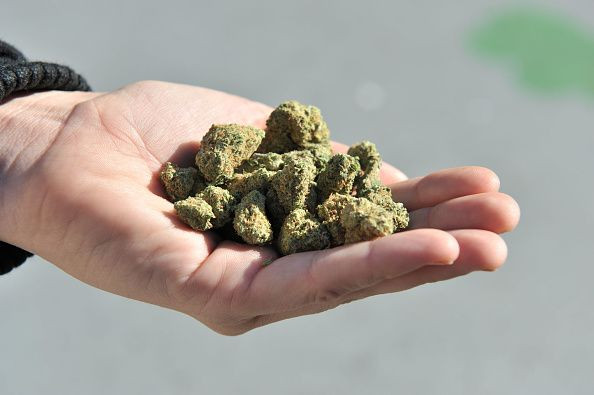CBD Compound In Marijuana Can Reduce Aggressiveness Induced By Isolation

Researchers of a new study have found that cannabidiol, or CBD, a compound present in marijuana, can reduce aggressiveness brought on by social isolation.
Isolation-induced aggressiveness is normally treated with antidepressant or antipsychotic drugs, but earlier studies suggest CBD may also work, so researchers from Brazil conducted an experiment to confirm this.
Francisco Silveira Guimarães, from the University of São Paulo's Ribeirão Preto Medical School (FMRP-USP), and colleagues injected four groups of mice with different doses of CBD to find out if the compound could alter aggressive behavior in animals that were kept in isolation for days.
A fifth group of mice that was not given cannabidiol served as the control.
The mice in the control group attacked an intruder mouse about two minutes after it entered their cage and made 20 to 25 attacks.
The mice that received the equivalent of 5 mg/kg of CBD started to attack after around four minutes and the number of attacks in the cage dropped by half.
Those that received 15 mg/kg of CBD behaved the least aggressive. They started to attack 11 minutes after the intruder mouse’s arrival. The number of attacks also only averaged about five.
The mice given 30 mg/kg and 60 mg/kg, however, attacked sooner and more frequently.
Guimarães explained that the reduction in the effects of CBD at higher doses was expected based on the results of other studies.
“In experiments to investigate its potential as an antidepressant, for example, higher doses led to lower effects after an initial gain. In our experiment, if we had tested 120 mg/kg on a group of mice, we might not have obtained any inhibition of the resident's aggressiveness at all," Guimarães said.
The researchers think CBD activates two receptors in the brain that can produce calming effects.
Although the compound is extracted from marijuana, it does not cause dependence. It neither causes people to get high. The marijuana compound associated with these effects is tetrahydrocannabinol (THC).
“CBD decreased c-Fos protein expression, a neuronal activity marker, in the lateral periaqueductal gray (lPAG) in social-isolated mice exposed to the resident-intruder test, indicating a potential involvement of this brain region in the drug effects,” Guimarães and colleagues wrote in their study.
“Taken together, our findings suggest that CBD may be therapeutically useful to treat aggressive behaviors that are usually associated with psychiatric disorders.”
The findings were published in the journal Progress in Neuro-Psychopharmacology and Biological Psychiatry.
© Copyright IBTimes 2025. All rights reserved.





















